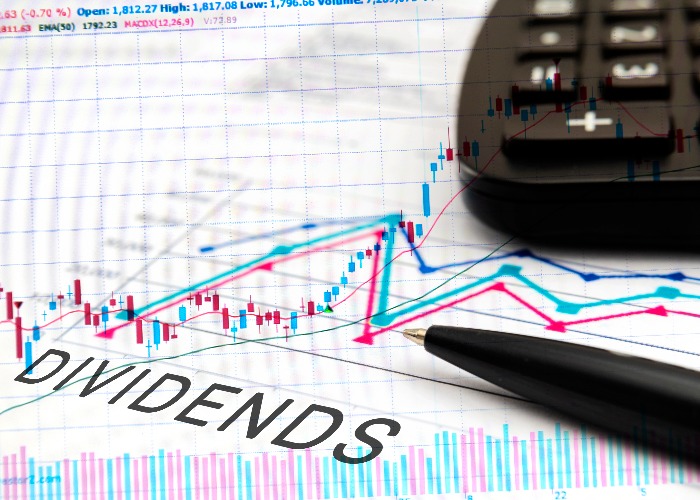Best stocks for dividends 2021: shares predicted to pay out

If you're looking for income from your investments, these dividend-paying stocks are well worth a look.
Different stocks can reward investors who back them in varying ways. Sometimes you pick a stock because you think it will grow in value substantially ‒ it’s a business on the rise, and you can foresee selling those stocks for a big profit down the line.
Sometimes you invest in a firm because of some sort of added incentive ‒ the brewery Brewdog rewards investors with free beer and discounts, for example.
However, a big appeal to some stocks is the potential to share in the firm’s profits through dividends, which are paid out to investors on a periodic basis.
If you’re investing in order to provide you with an income, then identifying the stocks that are reliable dividend payers is a smart move.
And new analysis from AJ Bell has picked out the stocks that are expected to hand back the biggest dividends to investors this year, making them well worth considering.
Improving fortunes
According to the forecasts, the FTSE 100 is expected to yield 3.7% this year, off the back of the first year of dividend growth seen since 2018. In total, pay-outs are expected to come to just shy of £77 billion, a pretty substantial improvement on the £61.5 billion paid out in 2020.
This bumper jump isn’t expected to continue next year either, with analysts forecasting a modest rise of £2.9 billion in 2022.
In other words, this year represents a prime opportunity to enjoy a boosted income from your investments.

Looking to yield
Let’s start by looking at the firms forecast to deliver the highest yields in 2021. In simple terms, the yield is how the dividend payments to investors compare to the share price of a stock, and it’s expressed in the form of a percentage.
It’s worth bearing in mind that the yield is not set in stone, and AJ Bell points out that some of the firms in the table below have a somewhat patchy record of cutting the dividend payments to investors.
Just two of the 10 listed have not cut dividends at some point in the last decade.
There have been plenty of other stocks in the past where expected yields of above 10% have instead seen the dividend cut, so don’t take it as read that investors in these stocks will be swimming in dividend payments.
The table also details dividend cover.
This is the amount of profit a business makes divided by its dividend payments to shareholders, so any firm with cover of less than one is paying out more to stockholders than it is making, which should set off alarm bells.
|
Stock |
Dividend yield |
Dividend cover |
|
Rio Tinto |
12% |
1.31 |
|
BHP Group |
9.2% |
1.18 |
|
Imperial Brands |
8.7% |
1.67 |
|
Evraz |
8.5% |
2.19 |
|
Persimmon |
7.7% |
1.03 |
|
Admiral Group |
7.6% |
0.81 |
|
M&G |
7.5% |
1.26 |
|
British American Tobacco |
7.5% |
1.39 |
|
Anglo American |
7.2% |
2.31 |
|
Phoenix Group |
6.9% |
0.63 |
Looking long-term
However, AJ Bell argues that focusing on stocks that have high yields may not be the best long-term strategy.
As Russ Mould, investment director at the firm, puts it: “Often defending a high yield can be a burden for a firm, as it sucks cash away from vital investment in the underlying business, or can be a sign that the company is in trouble and investors are demanding such a high yield to compensate themselves for the (perceived) risks associated with owning the equity.”
Instead, it may be worth considering the stocks that have delivered long-term dividend growth, since they boast the double whammy of decent dividends and a higher share price.
It has picked out the 15 ‘dividend aristocrats’ below, highlighting their performance over the last decade, as well as the dividend growth they are expected to deliver over the next two years.
|
Stock |
Total return since 2011 |
Forecast dividend growth 2021 |
Forecast dividend growth 2022 |
|
Ashtead |
3,425.4% |
6.8% |
17.8% |
|
Intermediate Capital |
1,013.1% |
10.7% |
12.9% |
|
London Stock Exchange |
991.2% |
14.7% |
14% |
|
Scottish Mortgage |
865% |
3.8% |
4.2% |
|
Spirax-Sarco |
734.8% |
9.3% |
7% |
|
Halma |
703.4% |
9.7% |
5.3% |
|
Croda |
369.4% |
7.7% |
7.1% |
|
RELX |
368.6% |
4.3% |
8.2% |
|
DCC |
311.8% |
6.4% |
4.1% |
|
Diageo |
259.2% |
0.2% |
5.7% |
|
Hargreaves Lansdown |
258.7% |
38.7% |
(9.6%) |
|
United Utilities |
175.2% |
1.2% |
1.1% |
|
National Grid |
163.5% |
2.5% |
1.2% |
|
Sage |
94% |
1.7% |
2.6% |
|
British American Tobacco |
69.9% |
0.6% |
5.5% |
Don’t overlook buybacks
It’s also worth reflecting on the way that FTSE 100 firms are starting to embrace share buybacks too.
12 members of the index have announced share buybacks so far: Barclays, Berkeley, BP, CRH, Diageo, Ferguson, NatWest, Rightmove, Sage, Standard Chartered, Unilever, Vodafone.
These aren’t small buybacks either, with an aggregate value of a whopping £7.2 billion.
These buybacks, combined with the higher rate of dividends, means investors with the right stocks in their portfolios are enjoying an even greater income.
Comments
Be the first to comment
Do you want to comment on this article? You need to be signed in for this feature